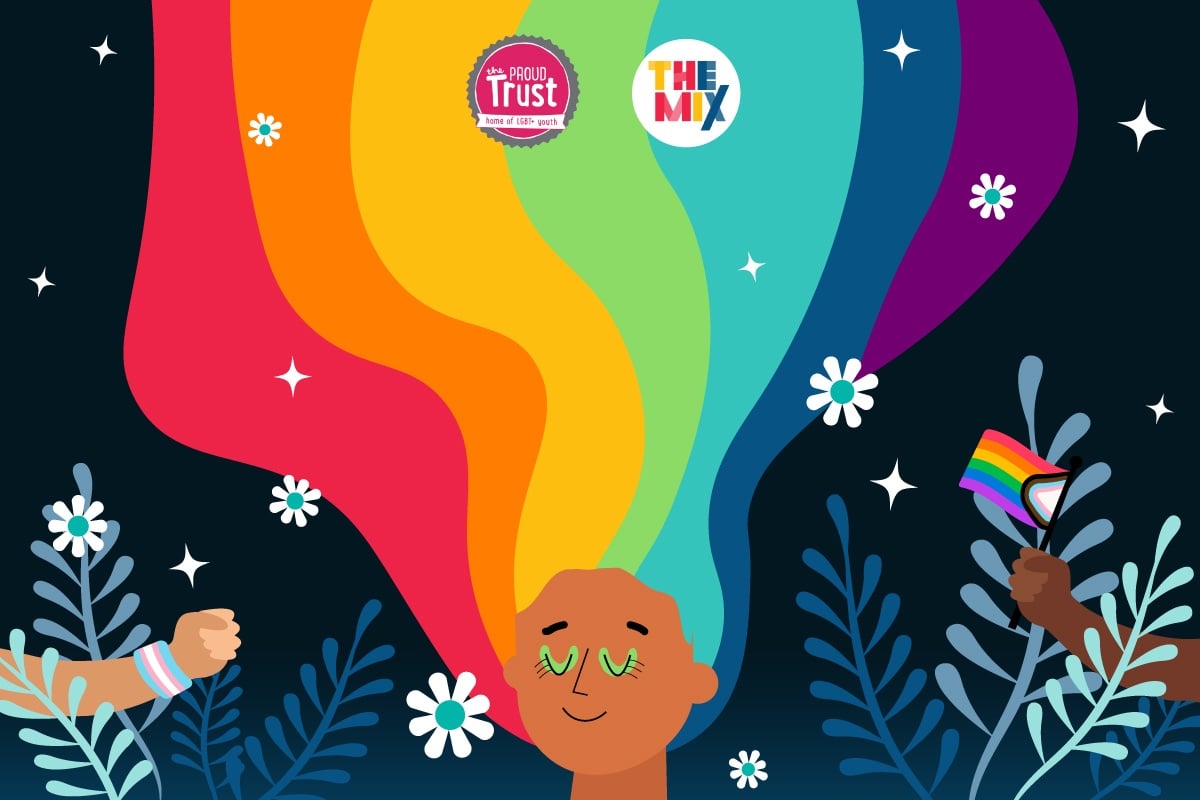How to celebrate LGBT+ History Month

What is LGBT+ History Month?
You might have heard that LGBT+ History Month falls every February, but what is it and how can you celebrate? We spoke to the experts at The Proud Trust to find out more.
LGBT+ History Month is a month-long annual celebration of the lives of LGBT+ people of the past, the history of LGBT+ rights and related civil rights movements. It is marked every February in the UK, to coincide with the 2003 abolition of Section 28. Each year, a new theme is created to commemorate different parts of LGBT+ history.
LGBT+ History Month in the UK was founded by Schools OUT UK, and this year they have chosen the theme of Science and Medicine, #UnderTheScope. It encourages us to reflect on the contribution LGBT+ people have made in medical science, allows us to think about the community’s relationship with the medical industry; and to challenge the underrepresentation of LGBT+ people in STEM (science, technology, engineering and mathematics).
Why is LGBT+ History Month important?
LGBT+ History Month encourages us to shed light on the remarkable work of those who came before us and will continue to be revolutionary after us. Below are three historical figures you might recognise, all of whom worked in science and medicine and may today have identified within the LGBT+ community.
Dr Cecil Belfield Clarke (1894 – 1970) was a physician who invented a formula to calculate the dosage of medicine for children, also known as ‘Clarke’s rule’. Additionally, he was a Barbados/Cambridge scholar and political activist. He founded the ‘League of Coloured Peoples’, a British civil-rights Organisation. Belfield Clarke was known to be gay and from the 1930s, lived with his partner Pat Walter.
Florence Nightingale (1829 – 1910) was an English social reformer, statistician and the founder of modern nursing. She was put in charge of nursing British and allied soldiers in Turkey during the Crimean War. She founded the Nightingale School of Nursing at St. Thomas’ Hospital in London and was the first woman to be awarded the Order of Merit in 1907. Historians believe Nightingale was a lesbian because she never married and in her writings, she describes her experiences of sleeping with women.
Dr Alan Hart (1890 – 1962) devoted much of his career to research into and treatment of tuberculosis. He is responsible for saving the lives of millions of patients with TB and his work established the basis of many screening tests that are still used today. Hart would likely describe himself as a trans man today and wrote of his happiness when he first started to present as a boy.
Read about some more important LGBT+ heroes from the past and present:
View this post on Instagram
How can I celebrate LGBT+ History Month?
If you’re looking to celebrate LGBT+ History Month, downloading The Proud Trust’s free LGBT+ History Month Education Pack is a great place to start! It’s a fun way to learn or teach about LGBT+ history, with a particular focus on LGBT+ scientists and medical professionals. If you want to know more about Dr Alan Hart, check out the fact file and activity inside. Also, it will help you to recognise positively inclusive spaces in healthcare and how this can be applied to all settings where people exist.
Visit the People Like Me page on The Proud Trust’s website or check out Instagram to find out more about influential LGBT+ people who have written history and will shape our future.
If you are passionate about supporting LGBT+ young people in your school, why not take this as your cue to sign up for the Rainbow Flag Award and commit to making your school a safe, supportive and inclusive space for all students.
Finally, if you want to create a safe space for LGBT+ young people in your school, you can set up your own LGBT+ youth group. Sign up to Groups in Schools Alliance to receive a weekly email into your inbox with tips on how to create a thriving group.
Next Steps
- Chat about this subject on our Discussion Boards.
By
Updated on 20-Feb-2024
Sorry, comments closed
No featured article














